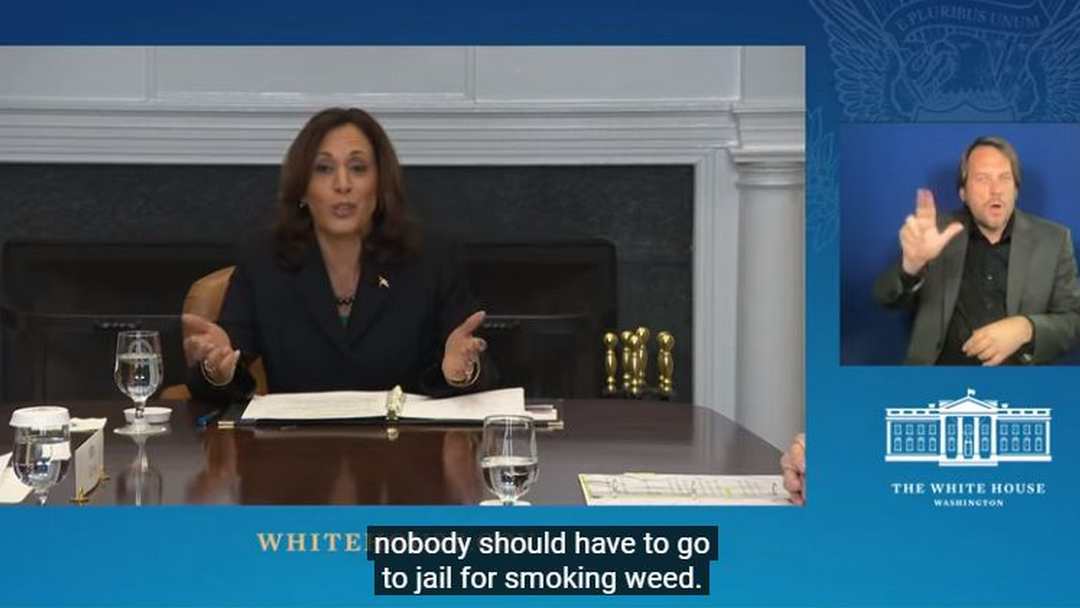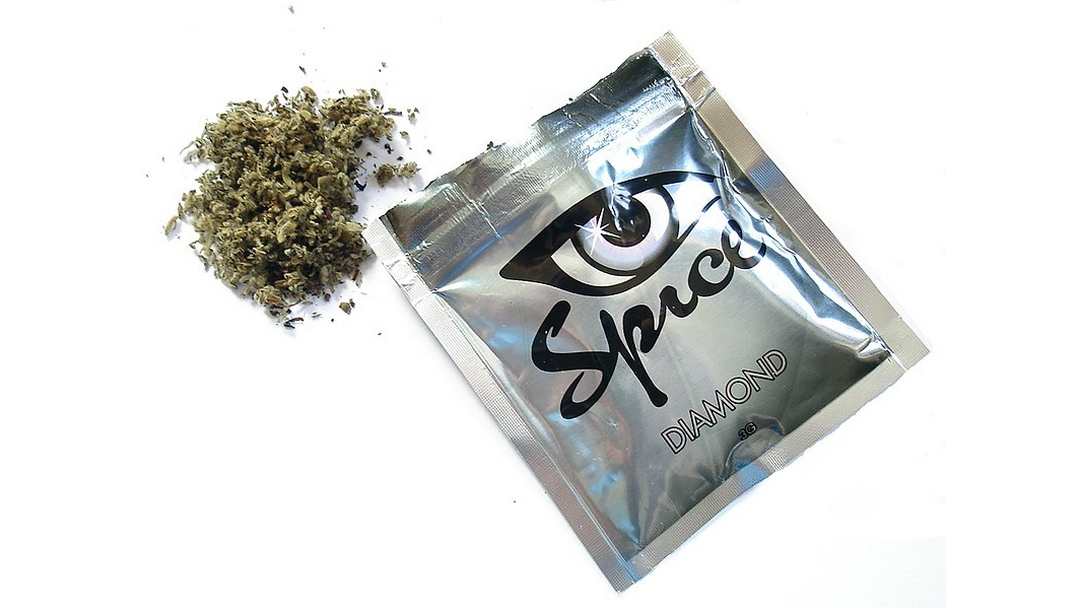No Results Found
The page you requested could not be found. Try refining your search, or use the navigation above to locate the post.

Marijuana reform advocates demand an apology from Kamala Harris for locking up pot smokers and slam her ‘political hypocrisy’ for now saying no one should ‘go to jail for smoking weed!’
Marijuana reform advocates are urging Vice President Kamala Harris to issue an apology for her past actions of incarcerating individuals for marijuana use and possession. This call for accountability comes at a time when Harris is attempting to overhaul her public image as a compassionate champion of reform.
As a District Attorney of San Francisco, she oversaw more than 1,900 convictions for the use or possession of marijuana according to public records.
Harris also opposed the legalization of marijuana for recreational use until she ran for California’s Senate seat in 2015.
‘She absolutely has no moral authority to speak on this issue whatsoever,’ marijuana legal reform advocate Steve DeAngelo told the DailyMail.com after Harris’ event at the White House.
‘She has no right to speak about cannabis at all except to apologize for her hypocrisy.’
During her campaign for Attorney General of California in 2010, Harris took a stance against a ballot proposition that sought to legalize marijuana, resulting in a significant setback for the movement.
Advocates like DeAngelo comprehend the importance of President Joe Biden and Harris emphasizing the popular issue in anticipation of the 2024 election. However, they implore the leaders to take concrete actions that will have a substantial impact.
‘They’re giving out cookie crumbs when they could actually be helping folks in a very serious way,’ Jason Ortiz, the Director of Strategic Initiatives for the Last Prisoner Project told DailyMail.com.
Ortiz said that despite Biden’s 2022 federal pardon of thousands of marijuana convictions, ‘zero cannabis prisoners’ had actually been released from prison as a result of his action.
(The list of pardon applied to individuals already out of prison.)
The Last Prisoner Project is urging for President Biden to exercise his clemency powers in order to release 3,000 federal cannabis prisoners. In April, they plan to organize a protest outside the White House to raise awareness about this critical issue.

Related Articles
The page you requested could not be found. Try refining your search, or use the navigation above to locate the post.
The page you requested could not be found. Try refining your search, or use the navigation above to locate the post.

An independent federal agency has recently cited a Michigan credit union for non-compliance with regulations regarding banking services for the marijuana industry. Consequently, the financial institution has been directed to halt the opening of new cannabis accounts.
The National Credit Union Administration’s cease-and-desist order emphasizes the need for financial institutions to maintain compliance when providing services to marijuana businesses.
The Financial Crimes Enforcement Network (FinCEN), a division of the U.S. Treasury, has issued regulations to financial institutions regarding the surveillance and reporting of suspicious activities, including potential money laundering.
The credit union had a manual system, which resulted in the late filing or missed suspicious activity reports.
But what about this –> Cannabis cash transactions aren’t suspicious says IRS
According to the order the credit union waived its right to appeal and agreed to take the following steps:
Immediately cease opening new marijuana accounts and suspend transactional activity on certain existing accounts. Implement an automated system to effectively monitor, identify and file suspicious activity reports in accordance with FinCEN regulations. Engage a third party to validate compliance.
Related Articles
The page you requested could not be found. Try refining your search, or use the navigation above to locate the post.
The page you requested could not be found. Try refining your search, or use the navigation above to locate the post.

Large cash transactions by marijuana businesses should not be automatically flagged as suspicious, as per the latest IRS guidance.
The tax agency’s guidance aims to provide clarity on the federal Bank Secrecy Act, which mandates businesses, including banks, to submit Form 8300 within 15 days if they receive $10,000 or more in cash.
Those forms enable the filer to categorize a transaction as “suspicious,” providing vital information for investigation by the IRS and the Financial Crimes Enforcement Network (FinCEN) into potential criminal activity.
But classifying a cash transaction from a legitimate cannabis enterprise as suspicious in a defensive manner is a misuse of that designation,” cautioned IRS Special Counsel Charles Hall in a memorandum dated January 22nd.
Related Articles
The page you requested could not be found. Try refining your search, or use the navigation above to locate the post.
The page you requested could not be found. Try refining your search, or use the navigation above to locate the post.

A woman, who was allegedly under the influence of cannabis, experienced a moment of panic while riding in a rideshare vehicle. In a concerning turn of events, she chose to abruptly exit the moving vehicle on I-96 near I-94, according to reports from state police.
While state police were enroute, it was reported that a 31-year-old Detroit woman, the victim, had managed to escape from the vehicle during what appeared to be a kidnapping.
Witnesses recounted an incident where a woman abruptly leapt out of a vehicle in the left lane of I-96. Subsequently, a rideshare driver informed that she had disembarked from his vehicle due to her discontent with the chosen route towards downtown Detroit.
“During she interview it was determined she was under the influence of marijuana and had anxiety because she saw a sign that said Port Huron and panicked thinking he was taking her somewhere else,” state police said on X.
Related Articles
The page you requested could not be found. Try refining your search, or use the navigation above to locate the post.
The page you requested could not be found. Try refining your search, or use the navigation above to locate the post.

State public health and poison centers have issued warnings in response to adverse health effects associated with abuse of herbal incense products containing these synthetic cannabinoids. These adverse effects included tachycardia (elevated heart rate), elevated blood pressure, unconsciousness, tremors, seizures, vomiting, hallucinations, agitation, anxiety, pallor, numbness, and tingling. This is in addition to the numerous public health and poison centers which have similarly issued warnings regarding the abuse of these synthetic cannabinoids. In some instances, the adverse health effects can be long-lasting even after the user quits using the substances.
In October 2010, seven artificial marijuana chemicals (JWH-015, JWH-018, JWH-073, JWH200, JWH-250, CP-47,497, HU-210) were made illegal in Michigan with penalties similar to marijuana possession (yeah they can still get ya in 2024 for weed)
5 Products that contain one or more of these chemicals are illegal.
However, as new formulas or versions of these drugs are marketed, they may contain chemicals not covered by the current law.
What if I have more questions?
The Michigan PCC is open 24 hours a day, 7 days a week to answer medical questions or concerns related to poisoning events. The PCC Help Hotline is: 1-800-222-1222.
If you got into a situation with the law then you want to call our number (248) 357-2550
Related Articles
The page you requested could not be found. Try refining your search, or use the navigation above to locate the post.
The page you requested could not be found. Try refining your search, or use the navigation above to locate the post.